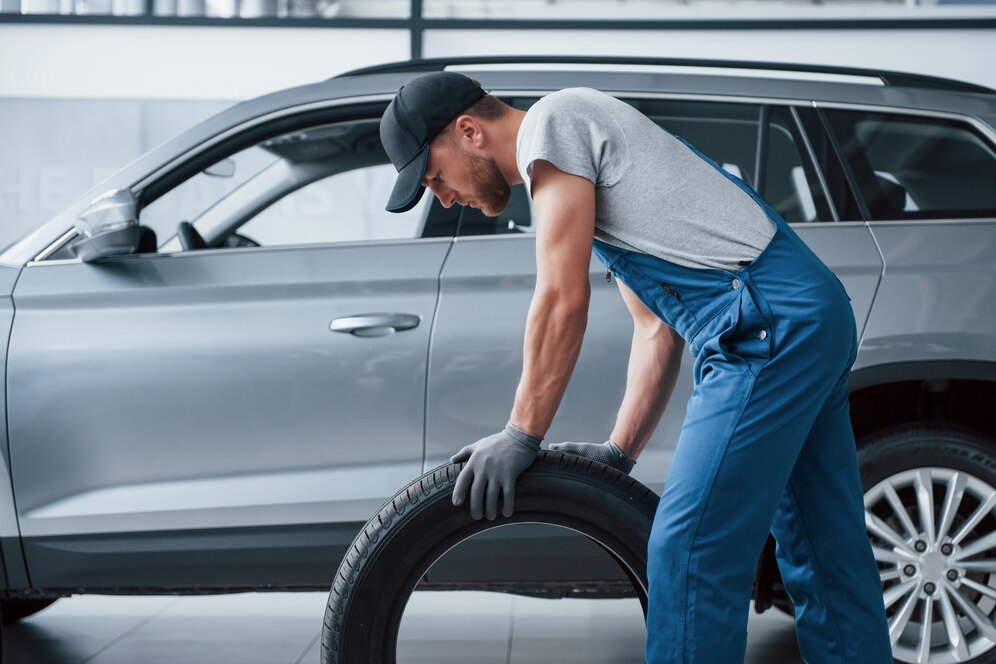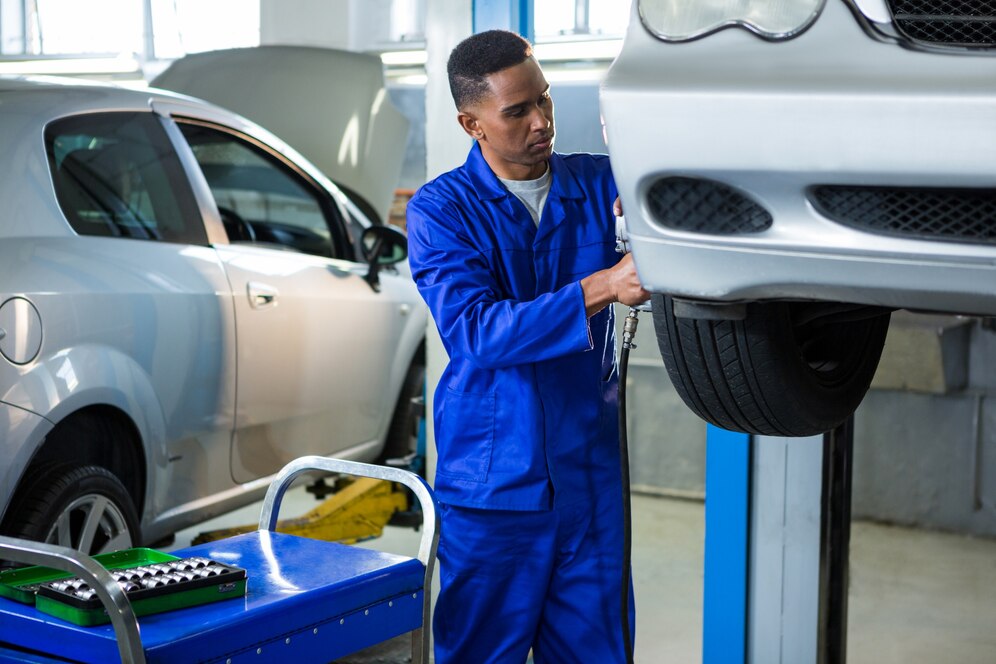introduction
Although having a car is a great convenience, it also comes with some responsibilities. Regular maintenance and timely repairs are crucial to ensuring your vehicle remains in optimal condition, runs efficiently, and lasts longer. Even minor issues can result in costly repairs down the road if ignored. This article will provide an in-depth look at essential car repairs, how to identify problems early, and steps you can take to maintain your car’s health.

The Importance of Regular Maintenance
Regular car maintenance is the key to preventing major breakdowns. Routine checks such as oil changes, tire rotations, and brake inspections can help identify minor issues before they escalate. Cars are complex machines that are made up of many parts that work together. When one part starts to fail, it can put pressure on other systems and cause a lot of damage. For instance, a worn-out timing belt can cause engine failure if not replaced in time. Thus, staying on top of routine maintenance not only enhances performance but also ensures safety on the road.
Common Car Repairs and Their Significance
Engine oil is essential for lubricating the moving parts of your car’s engine. Over time, oil collects dirt and debris, making it less effective. The engine is kept running smoothly and prevents premature wear and tear with regular oil changes, usually every 3,000 to 5,000 miles, depending on the type of oil used. Along with oil changes, replacing the oil filter is equally important as it traps contaminants that could otherwise damage the engine.
Brake System Repairs
One of a vehicle’s most important safety features is its brakes. Squeaking sounds, a spongy brake pedal, or vibrations while braking are all indications that your brakes need repair. If you ignore these symptoms, the brakes may fail, putting you and others in danger. Rotors and brake pads degrade over time, so they should be inspected frequently. When worn brake pads are replaced promptly, rotor damage, which can be a costly repair, is prevented.
Battery Maintenance and Replacement
The power needed to start the engine and run electrical components in a car comes from the battery. Batteries have a lifespan of three to five years on average, but extreme temperatures and excessive use of electrical systems can shorten that time. A dead battery is indicated by dim headlights, corroded terminals, and a sluggish engine. Keeping an eye on the battery’s charge and cleaning the terminals on a regular basis can help prevent unexpected failures. When a battery starts to lose charge frequently, it is time for a replacement.
Tire Repairs and Replacements
Tires are the only point of contact between the vehicle and the road, making them crucial for safety and performance. Tires that are worn out may result in decreased traction, increased stopping distances, and an increased risk of blowouts. Regularly checking tire pressure, rotating tires, and ensuring proper alignment can extend their lifespan. Tread depth should also be monitored; if it falls below 2/32 of an inch, the tires need to be replaced.
Suspension and Steering Repairs
A car’s suspension system absorbs shocks from the road, providing a smooth and stable ride. There may be issues with the suspension system if you experience excessive bouncing, uneven tire wear, or difficulty steering. Worn-out shocks, struts, or ball joints can affect the handling and stability of your vehicle. A smooth ride and the prevention of additional damage to other parts are ensured by prompt repairs.
Transmission Repairs and Fluid Changes
Transferring power from the engine to the wheels is the job of the transmission. Transmission problems frequently manifest themselves as slipping gears, sluggish acceleration, or strange noises. To avoid costly repairs, transmission fluid should be inspected and changed in accordance with the manufacturer’s recommendations. Ignoring transmission problems can lead to complete failure, which is one of the most expensive car repairs.
Cooling System and Radiator Repairs
The engine is kept from getting too hot by the cooling system. A malfunctioning radiator, leaking coolant, or a faulty water pump can lead to overheating, which can cause severe engine damage. Overheating issues can be avoided by regularly inspecting hoses for leaks and checking coolant levels. Flushing the cooling system periodically helps maintain its efficiency.
Exhaust System Repairs
Reducing emissions and directing harmful gases away from the vehicle are crucial functions of the exhaust system. A damaged exhaust system can lead to poor fuel economy, increased emissions, and a loud engine noise. Common issues with the exhaust system include rust, holes, or a damaged catalytic converter. Better fuel economy and compliance with emission regulations are guaranteed by promptly addressing these issues.
Preventative Measures to Avoid Major Repairs
To minimize the need for extensive repairs, following preventative maintenance practices is essential. Regularly checking fluid levels, monitoring warning lights, and adhering to the manufacturer’s maintenance schedule can help keep your car in top shape. Additionally, avoiding aggressive driving, such as rapid acceleration and hard braking, reduces wear and tear on the vehicle.Another crucial aspect of vehicle maintenance is proper storage. Using a car cover or parking in a garage can shield your vehicle from the elements and prevent rust and paint damage. Your car’s exterior can also be preserved by washing and waxing it on a regular basis.
When to Seek Professional Help
While some minor repairs and maintenance tasks can be done at home, complex issues require professional attention. If you notice persistent warning lights, unusual noises, or significant performance changes, it is best to consult a certified mechanic. Professional mechanics have the expertise and tools necessary to diagnose and fix problems accurately. Small problems can cost more to fix in the future if they are ignored.

Conclusion
Car repairs are an inevitable part of vehicle ownership, but staying proactive with maintenance can save time and money in the long run. Regular oil changes, brake inspections, tire maintenance, and battery checks are just a few essential tasks that keep your car running smoothly. You can prolong the life of your car and ensure a safer driving experience by paying attention to warning signs and promptly addressing minor issues. Car maintenance is essential to avoiding costly repairs and breakdowns, whether you choose to do it yourself or hire a professional.

